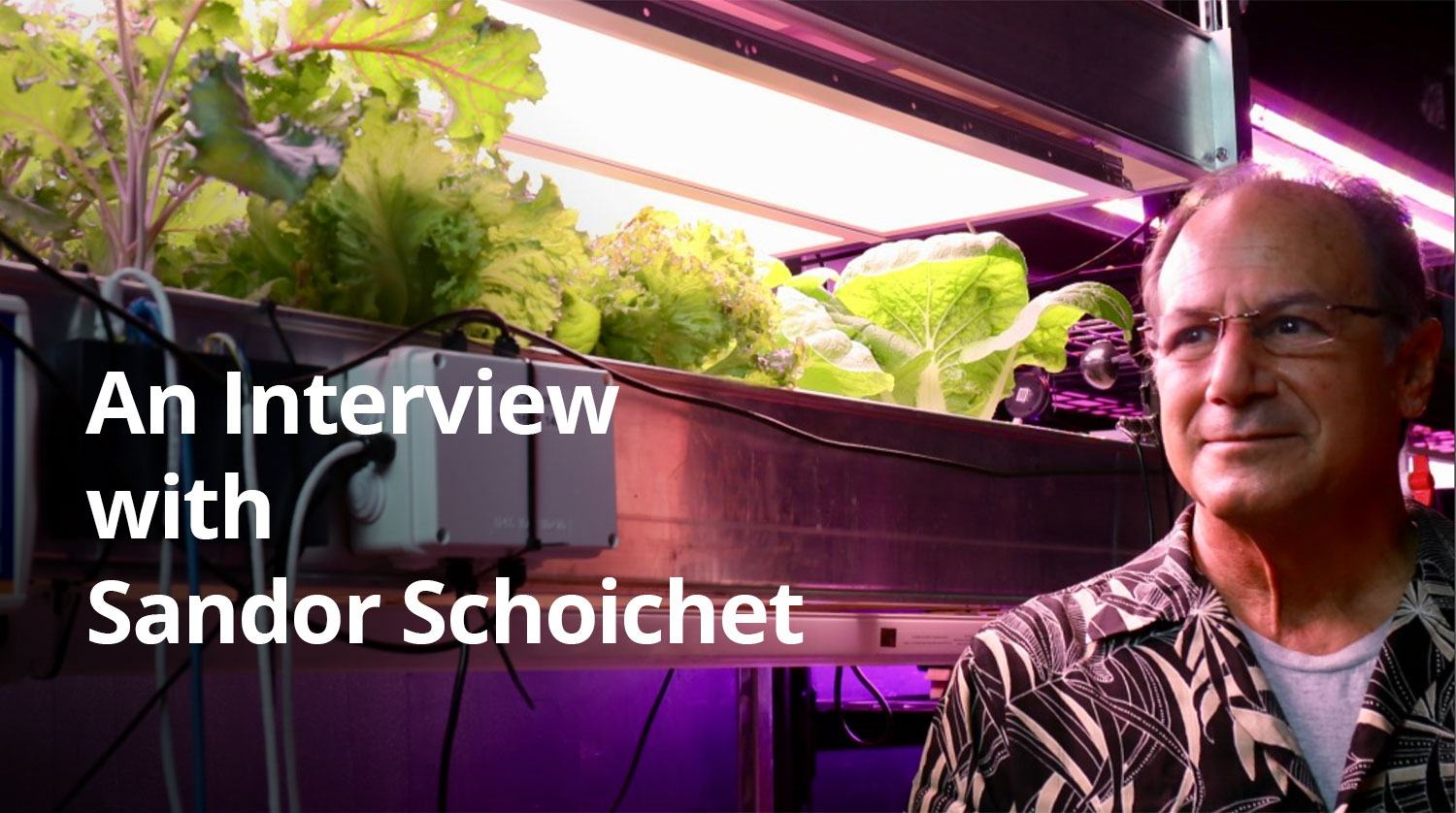Sandor Schoichet said that he is excited about a new technology called controlled environment agriculture, or CEA, which, he explained, is poised to revolutionize key elements of farming.
This is the focus of the VLAB panel “Indoor AgTech: Planting the Seeds of a Better Food Supply” on May 27.
An alum of MIT and University of California Santa Cruz, which he admits is a unique combination, and long-time VLAB leader, he joined me in an online fireside chat.
Michelle: One reason you are unique is that you went to both University of California Santa Cruz and MIT. How would you compare and contrast these school settings?
Sandor: Cambridge was very different from Santa Cruz or Los Angeles, where I grew up, but I loved the energy and history of Boston and made life-long friends within my research group. There’s something about the shared adversity of the weather that makes social connections tighter.
I think I was only the second student to go from UCSC, which had no grades at the time, to MIT.
However, I worked for three years in between as a logic engineer, my favorite job title ever, to build up some credibility.
At MIT I was in the Computer Science & Artificial Intelligence Laboratory. My office was in an area called Tech Square. My involvement with life sciences came later when I moved back to the Bay Area.
My building in Cambridge has been remodeled for biotech and medical device research, and the whole Tech Square area is filled with biopharma research and development.
Through the life sciences especially, there’s a very close connection between the Bay Area and Boston.
Michelle: Another reason you are unique is that you’ve chaired four VLAB panels. What was your first experience with VLAB, and why did you decide to chair this new panel?
Sandor: When I first came across the VLAB back in 2004 I made the mistake of asking why there weren’t any biotech events on the calendar. I quickly found myself the chair of one on bio-nanotech devices.
That was such a positive experience that I volunteered again to lead events on nanotube sensors in 2006, and biofuels in 2010.
Recently, I’ve become intrigued with controlled environment agriculture (CEA), often called vertical farming, after the stacked layers of growing plants that are possible with artificial lighting. It’s a whole new business and technology sector that’s going to play an increasingly important role in the quality, sustainability and resilience of our food supply.
Michelle: What technologies does CEA utilize?
Sandor: Many new technologies are being integrated to build a new food production platform at commercial scale, from LEDs, robotics, sensors, and artificial intelligence for farm operations, to genetics and breeding for indoor growing and improved nutrition, and even pharmaceutical production.
Michelle: Is there one dynamic expert who stands out on the May 27th panel?
Sandor: One that I’d like to call out is Dr. Gene Giacomelli, our moderator. He’s one of the early visionaries for the field. He’s founder and director the Controlled Environment Agriculture Center (CEAC) at the University of Arizona, which has been a key training center for professionals in this new field.
As his day job, Mr. Schoichet runs Meridian Management Consultants which provides strategy and executive advisory services for life science companies.
Michelle McIntyre, a Silicon Valley PR consultant and IBM vet wrote this story. A #futureofwork influencer herself, she’s @fromMichelle on Twitter. Follow VLAB as well at, you guessed it, @VLAB.
